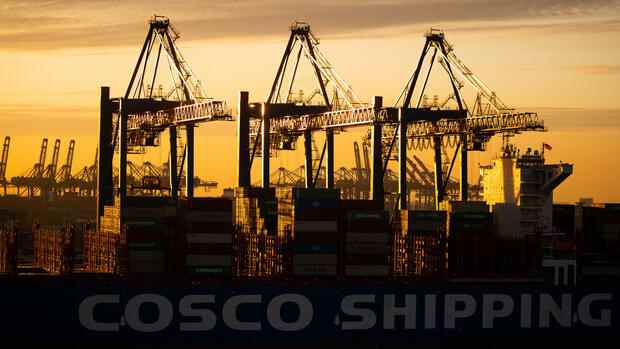The chairman of the secret service control committee of the Bundestag, Konstantin von Notz (Greens), told the Handelsblatt: “There may be short-term economic arguments for China’s entry into the port of Hamburg, long-term, political-strategic reasons prohibit such a sale.” monitors the work of the German intelligence services.
For von Notz it is obvious: “If China and its communist leadership hold relevant parts of the global and European supply chains in their hands, we are simply open to blackmail.” Ally of constitutional and liberal democracies”.
The FDP parliamentary group politician Marie-Agnes Strack-Zimmermann was even clearer. “What else has to happen in the world for Germany to arrive in reality and not behave in front of the enemies of the free democratic world?” wrote the chairwoman of the defense committee in the Bundestag on Twitter.
Top jobs of the day
Find the best jobs now and
be notified by email.
A sale of critical infrastructure to China is a “blatant mistake”. With a view to Scholz, she added: “Who actually advises the Chancellor?” The China expert and first parliamentary director of the FDP, Johannes Vogel, also found clear words: “We shouldn’t be that stupid,” he tweeted.
The Hamburg port logistics specialist HHLA and Cosco reached an agreement in September 2021: Cosco Shipping Ports Limited (CSPL) will receive a 35 percent minority stake in Terminal CTT, and the world’s second largest container shipping company will concentrate its cargo flows in the Hanseatic city. The Port of Hamburg is to receive an amount of around 65 million euros for the participation. CTT is to become a preferred transhipment point in Europe.
China is by far the most important trading partner in the third largest European seaport, Hamburg – the port is even dependent on the Chinese state-owned company in parts. Cosco has had its ships moored at the CTT terminal there for decades. With four berths and 14 container gantries, CTT is one of three container terminals operated by HHLA in the Port of Hamburg.
According to the Port of Hamburg, the deal would be an important step in the competition against Antwerp and Rotterdam. But the deal has to be approved by the federal government. And here there are major reservations from all six ministries that are technically involved in the investment appraisal.
Secret services view China’s influence with great concern
Federal Economics Minister Robert Habeck (The Greens) has already threatened a ban because he fears too much Chinese influence. “I’m leaning towards the fact that we don’t allow that,” he explained.
The deal has been on hold since August. The current approval or prohibition period expires at the end of October. It was extended because of the dispute, and a decision should now be made by the end of the year.
The process is explosive, especially since this week the presidents of the German intelligence services openly addressed the China problem at a hearing in the Bundestag. The head of the German foreign intelligence service BND (Federal Intelligence Service), Bruno Kahl, said that China is not afraid to use economic leverage and technical possibilities to assert its interests.
The President of the Federal Office for the Protection of the Constitution, Thomas Haldenwang, warned that no situation should arise in which China “can also influence political events in Germany” via infrastructure.
Hamburg’s Prime Minister Peter Tschentscher (SPD) sees Habeck’s reservations about Cosco’s entry with great unease. Tschentscher simply fears the locational disadvantages for Hamburg in international competition.
More about China:
“A refusal would be a heavy burden for the business location and a one-sided, competition-distorting disadvantage for Hamburg compared to Rotterdam and Antwerp, in which Cosco already owns terminal shares,” said the first mayor of the Hanseatic city recently. In order to survive in international competition, it should also be possible for shipping companies to hold stakes in terminals in Hamburg.
Von Notz warned, however, that the participation in China should not repeat what Berlin is currently experiencing with regard to Russia, namely that a one-sided dependency on Germany could cost Germany dearly. “It is falling on Germany’s feet at the moment to have made itself dependent on issues of critical infrastructure from countries that expressly do not share the values of our constitutional state and Europe,” said the Green politician.
“In this situation of a dictatorship like China, which declares completely offensively that it can’t do anything with universal human rights and the rule of law values of Europe, to leave highly sensitive parts of our critical infrastructure would be a repetition and deepening of past mistakes, from which we actually learned should have.”
More: Comment – Leaving China has never been more rewarding than it is now.
